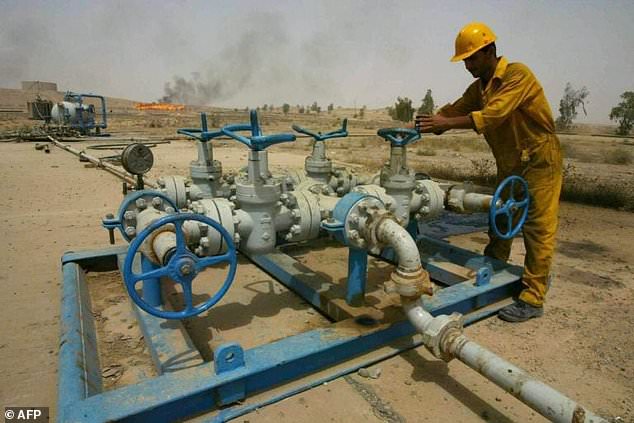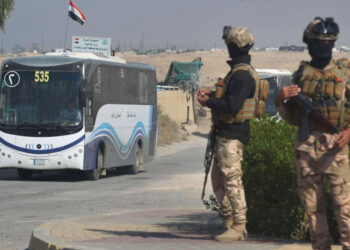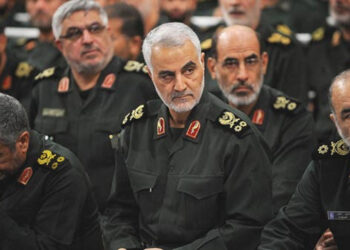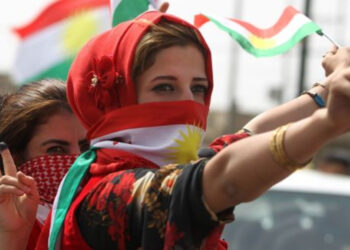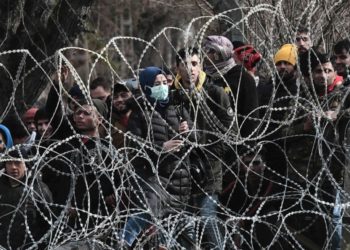The Kurdish region in Iraq was confident in the face of threats when it went to independence referendum last month, thanks to generous oil wells in Kirkuk area that had been providing much-needed cash to pay salaries in Kurdistan.
But overnight this week, oilfields in Kirkuk and surrounding areas changed hands. After the Iraqi forces took control over Kirkuk on Monday, forcing the Kurdish Peshmerga to leave the area, large oilfields slipped out of the Kurdistan Regional Government’s (KRG) hands, delivering a blow to the region’s oil-dependent economy.
Kirkuk had been controlled by the KRG since 2014 when the Peshmerga cleared the area from ISIS. After the Kurdish independence referendum on September 25, Prime Minister Haider al-Abadi secured a mandate from the Iraqi Parliament to seize oilfields in disputed territories around the city.
The tensions between Baghdad and Erbil have affected the oil flow from Kirkuk which has dropped to less than 250,000 barrels a day.
“Our latest reporting shows that crude exports through the northern pipeline to Ceyhan are down to 190,000 b/d [barrels a day]. This is down from 350,000 b/d on Tuesday and 600,000 b/d on Monday, when it was going pretty much full volume,” Herman Wang, a London-based reporter covering OPEC for S&P Global Platts, told The Globe Post.
However, the current decrease has had no major impact on global oil market so far as it appears to be well-supplied.
“Of course, if the entire pipeline gets shut down, whether by Turkey or Iraq or the KRG, or all of the Kirkuk fields stop producing, that could have a ripple effect on the market,” Mr. Wang noted.
The jostling for control over Kirkuk is not a mere political struggle, it has far-reaching economic consequences, particularly for the KRG.
“With Baghdad taking over the Kirkuk fields, Kurdish-controlled oil production capacity, which had been about 600,000 b/d, has been nearly halved. This obviously is a big loss of revenue for the KRG and a big blow for Barzani’s presidency,” Mr. Wang explained.
Kurdistan’s economy has been largely dependent on oil revenue. Shwan Zulal, a political risk and energy analyst and a fellow at London-based King’s College, told The Globe Post that losing income from the oil fields of Kirkuk will have a significant impact on the KRG’s finances.
Mr. Zulal said the KRG not only has a budget deficit at the moment but also has large amounts of debt and prepaid oil contracts, under which authorities are obliged to provide monthly quantities of oil to the traders who have already paid for it in advance.
As of Wednesday, the oilfields takeover has triggered a drop of 33.3-50 percent in exports to Turkey through Iraq-Turkey oil pipeline, according to Anthony Skinner, Director of the Middle East and North Africa Department at U.K.-based Verisk Maplecroft global risk and strategic consulting firm.
Since oil is the main source of revenue for the KRG, Erbil will really struggle to govern, Mr. Skinner told The Globe Post.
“This pressure point may ultimately force Erbil to make concessions when dealing with Baghdad. This at least is part of Baghdad’s calculation,” he said, elaborating on the challenges that await the Kurdish leadership.
“The risk of sustained disruption derives from Erbil and Baghdad not managing to conclude a pipeline access and revenue-sharing deal. Coming to such an agreement over the short term is probably too much to ask considering the intensity of the fallout.”
Kurdistan’s Oil Sector Faces Uncertain Future
Oil is the vital driving force for the economy of landlocked Kurdistan, which found itself in a difficult situation after the referendum as Turkey, Iran and Iraq’s central government in Baghdad put aside their differences to blunt Kurds’ march toward independence.
The three parties swiftly moved to impose sanctions, shutting down border gates and suspending flights to and from the Erbil international airport.
“They [KRG] thought they would make further gains – they didn’t. They thought they would unite the Kurds. On the contrary, it has fortunately divided Kurds in Iraq. There is huge chaos and confusion,” Turkish Foreign Minister Mevlut Cavusoglu said on Wednesday, commenting on the referendum.
Mr. Skinner said Ankara is looking to sustain trade and commerce with Baghdad while turning the screws on Erbil.
“An estimated three-fourths of the cross-border trade from Turkey to Iraq is destined for federal Iraq as opposed to Iraqi Kurdistan. So restricting commerce and trade with Iraqi Kurdistan could be manageable for Ankara, although an embargo would adversely impact the livelihoods of communities in southeastern Turkey,” he said, noting that Ankara is working closely with Tehran and Baghdad on its economic strategy.
Immediately after Kirkuk takeover, Baghdad urged BP to help develop the oilfields in the area. Meanwhile, Chevron announced on Thursday that it had temporarily suspended oil and gas drilling activity in Kurdistan amid turmoil.
Dallas-based energy economist Anas Alhajji believes that the impact of the Kirkuk oilfields takeover will be limited in the short term, but it could be significant in the long run if it limits the growth in oil production in Kurdistan.
“The Kurdistan-Iraq issues are endless and will keep casting their shadow on the oil market for years to come,” Mr. Alhajji told The Globe Post.
Kurdistan faces a lot of challenges in developing the remaining fields, according to Mr. Wang.
“There have been quality issues with some of the crude,” he said. “Even at the best of times, Kurdistan was struggling to attract investment, and some of the companies that had invested in the KRG’s oil sector, such as Genel [a London-listed producer chaired by former BP boss Tony Hayward] have been forced to downgrade how much oil they expect to produce from fields there.”
Though the turmoil may deter some of the Western companies from new projects in northern Iraq, Russia’s biggest oil company, Rosneft, has sealed an agreement with the KRG to take control over its main pipeline.
Rosneft has invested some $3.5 billion in the region despite the uncertainty triggered by Baghdad-Erbil tensions.
Effect on Oil Prices
There is a diverse set of forces at play that shapes the international oil market. The showdown between Baghdad and Erbil over Kirkuk is only one element that investors and the heavyweights of oil trade warily watch.
According to Mr. Skinner, while the fallout over Iraqi Kurdistan’s vote on eventual sovereignty has placed upward pressure on oil prices, it is not the only force at play.
“Output has fallen in Venezuela, while concerns over the disruption to production or deliveries from Libya and Nigeria persists,” he said.
A general, though not absolute, freeze in output by OPEC members have caused crude prices to rise by 30 percent since June, Mr. Skinner explained.
“The market is still characterized by oversupply; this will not be aided more drilling in the U.S. for Shale should prices rise further,” he noted.


